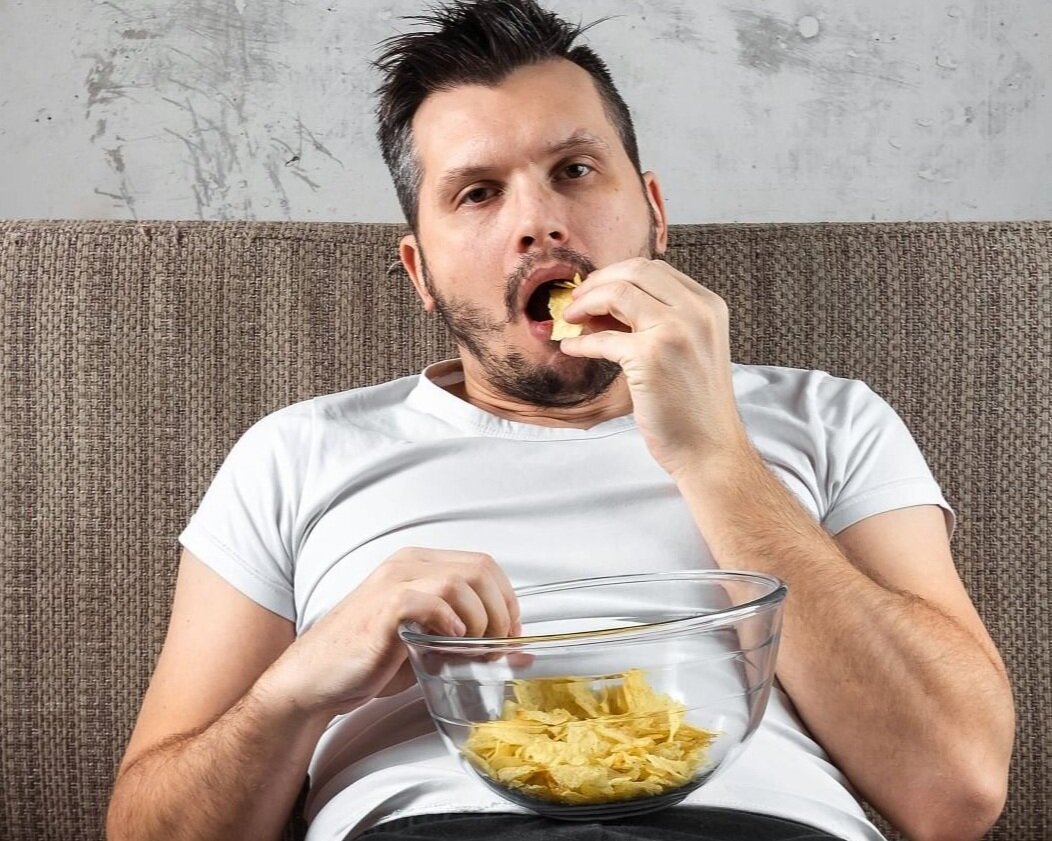Many of us have spent months at home and have developed a whole lifestyle around it. Our stay-at-home lifestyle may be unique to each of us, but the effect on our health is remarkably similar. In particular, many of us have more unstructured time, have developed new sleep patterns, are staying indoors more, have a lower level of physical activity, and socialize only with our household. The impact of these changes has resulted in many of us gaining weight during the pandemic. For example, a search of the "quarantine 15" on Instagram and Facebook garners 15,000 results (Zachary et al., 2020).
If you have found yourself with a bit of extra weight, you aren't alone. Research shows that approximately 22% of adults reported that they have gained between 5-10 pounds (Zachary et al., 2020). Unfortunately, most of us will give up on our goal to lose these extra pounds in about a month. And we will be stuck with these extra pounds for some time to come. That's because we established new and perhaps unhealthy habits during the pandemic, mostly due to our stay-at-home lifestyles.
Even when things start approaching normal, it will be difficult to break these unhealthy habits and establish new healthy habits. It's not the lack of knowledge about what and why we should change, nor is it the lack of desire. The primary reason we have so much difficulty maintaining our commitments is that we rely on willpower to change our behavior. Unfortunately, willpower wears out…. when we are tired, stressed, or bored.
Want more tips to live a healthier and happier life? Check out Saundra’s latest book here.
Instead of going down the road that leads to the same failed result, how about trying a different approach? Mindfulness is defined as the awareness that arises when we pay attention in the present moment, on purpose, and non-judgmentally. Mindfulness offers an alternative way to approach behavior change by allowing experiences to unfold with curiosity, openness, and acceptance, rather than self-control or willpower. Here are the ways mindfulness can help us change our behavior to meet our goals.
Improving Our Awareness. You can't change behavior that you aren't aware of. For example, many individuals report they don't notice that they are out of touch with their hunger and satiety goals until they feel uncomfortably full or starving.
Evaluating Outcomes. By evaluating results or outcomes, we can get an accurate assessment of the impact of an episode of reward-related eating rather than selectively paying attention to certain aspects of the experience. For example, if we eat to numb ourselves from painful feelings and only pay attention to the temporary relief, we may not remember accompanying physical sensations such as being uncomfortably full, sluggish, or feelings of guilt or shame.
Supporting Intuitive Self-Care. A mindful approach to healthy habit formation often leads to more self-compassionate ways of being and promotes positive health behaviors (Mantzios and Wilson, 2014, 2015). Being compassionate to ourselves means that we understand that excessive criticism of ourselves or adding guilt does not feel good and does not help us move towards our goals. With practice, we see the relative rewards of self-compassion resulting in self-care becoming more "intuitive."
I recently had the opportunity to do a webinar for Health New England's clients on Healthy Habits. If you are interested in learning more about how habits are formed and how mindfulness can help, click here to see a way you can get back on track with your healthy lifestyle.
References
Mantzios, M., & Wilson, J. C. (2014). Making concrete constructs mindful: a novel approach for developing mindfulness and self-compassion to assist weight loss. Psychology & health, 29(4), 422-441.
Mantzios, M., Wilson, J. C., Linnell, M., & Morris, P. (2015). The role of negative cognition, intolerance of uncertainty, mindfulness, and self-compassion in weight regulation among male army recruits. Mindfulness, 6(3), 545-552.
Zachary, Z., Brianna, F., Brianna, L., Garrett, P., Jade, W., Alyssa, D., & Mikayla, K. (2020). Self-quarantine and weight gain related risk factors during the COVID-19 pandemic. Obesity research & clinical practice, 14(3), 210-216.



